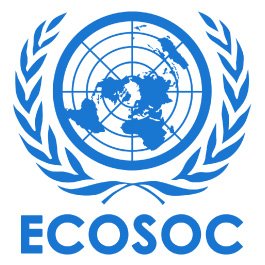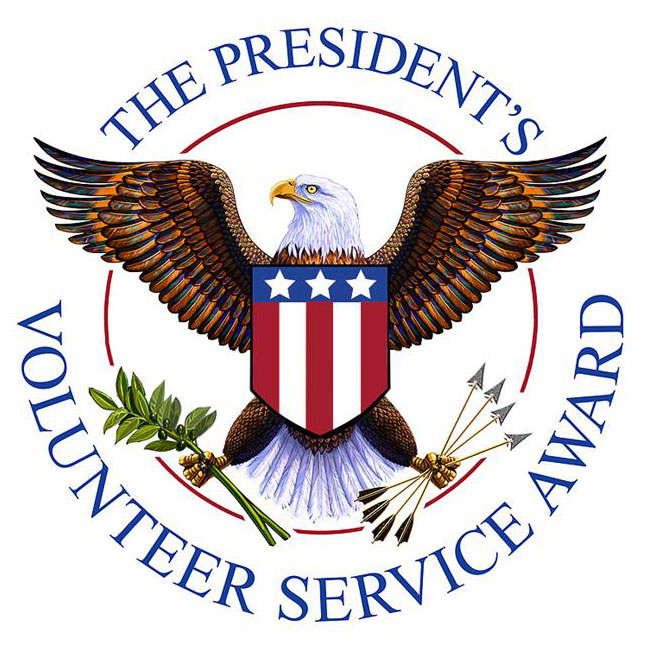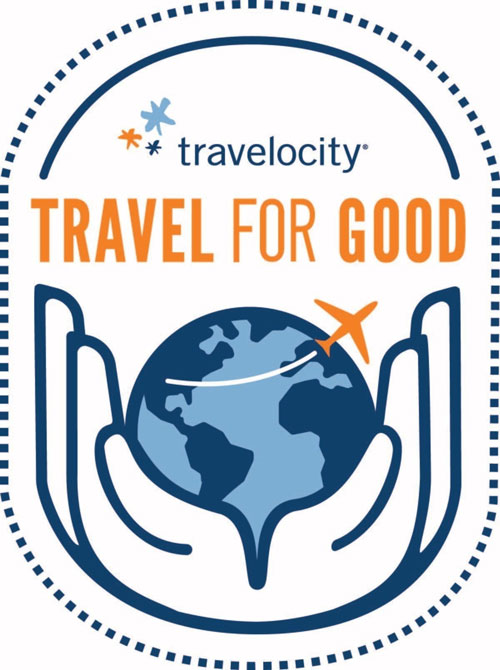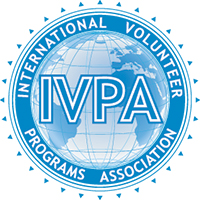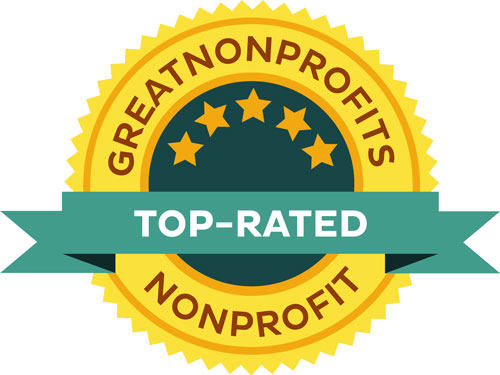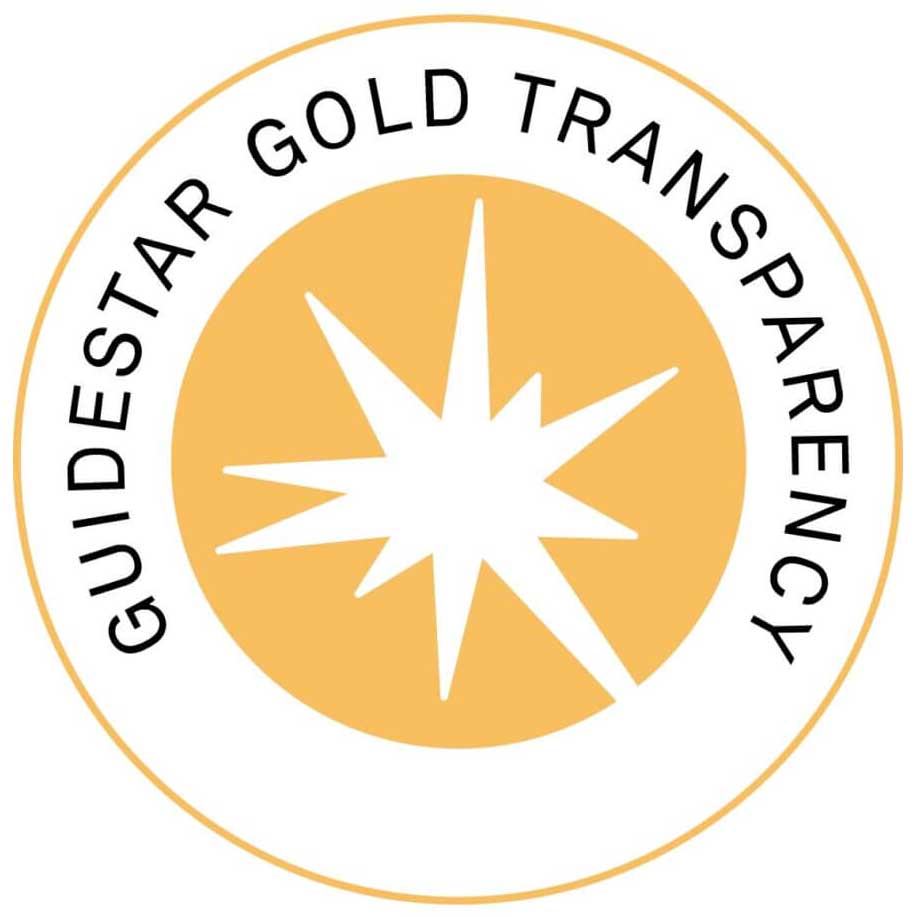Featured Articles
Featured Articles
Featured Articles
- Source: Southern Methodist University
Follow along on this reporter's account of Kimberly Haley-Coleman's circuitous journey from the world of finance and museums, to founding Globe Aware, an organization facilitating one-week volunteer vacations in 21 countries, catering to individuals with demanding work schedules. Her initiative emphasizes mutual learning, community involvement, and sustainable progress, transcending traditional volunteerism narratives. Additionally, she launched an innovative affordable luxury concept, The Tickle Bar, during the pandemic, aiming to spread joy and create jobs. Through her ventures, Haley-Coleman embodies a fusion of business acumen and compassionate engagement, fostering a global community invested in sustainable change and meaningful connections.
By Kathryn Orr, SMU Journalism Undergraduate
Southern Methodist University's "The Daily Campus"
Kimberly Haley-Coleman is an entrepreneur redefining the contours of philanthropy, transcending conventional business paradigms to foster impactful global change.
A graduate of Emory University, she embarked on a journey through the realms of finance, working for various organizations such as CNBC.com and developing the stock prediction tool Dcipher. Haley-Coleman defined her work as fulfilling and found that her constant travel liberated her from a desk-bound routine.
However, Haley Coleman's childhood was also filled with perpetual travel, encouraging her wanderlust, and thus, by the time she began traveling for work, she found a need to engage in cities beyond the tourist attractions. Haley-Coleman approached non-governmental organizations abroad on her days off but found getting involved with short-term volunteerism challenging. NGOs needed her help, but with the time it takes to train someone, they needed her to be able to stay long-term.
Haley-Coleman, however, began taking matters into her own hands and organizing her own service opportunities. Instead of going through NGOs, Haley-Coleman would go directly to schools, people's homes, and corporations and ask them what they needed, if anything could be done, and how they wanted it done. After a few trips, she began to realize the level of demand these communities had for her help. In addition, each time she returned home, she found a high level of interest with her peers in what she was doing and would have several people ask to join her on her next trip.
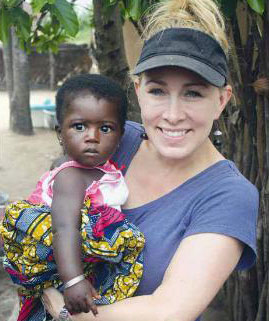
After witnessing the overwhelming interest from others to join her cause, she began to reflect on the life of an individual who works a typical nine-to-five. She expressed difficulty fathoming a life without travel or physical engagement. These contemplations drew the realization that there is a widespread desire for greater life experiences and that many countries need assistance, prompting Haley-Coleman to carve out a new path.
She explains that starting her own business scared her, but the idea of people being bound to a cubical devoid of physical connections scared her more.
“Clearly, if you've got a mortgage, children, or a job, you just can't be away that long. And while things have been changing for many years in the United States, five or ten days of paid vacation has been a typical top-out. And that's the genesis of how this all came about, to begin with.” Said Haley-Coleman
Thus, with the yearning for impactful travel experiences in 2001, Globe Aware was co-founded. The paradigm-shifting organization curates one-week volunteer vacations across 21 counties.
This novel venture caters to individuals entrenched in demanding work schedules, offering them a gateway to contribute to communication worldwide. The ethos of Globe Aware revolves around fostering meaningful engagements devoid of the stereotypical volunteerism narrative. Its initiatives aim not for fleeting gestures but for sustainable, meaningful engagements.
Probably the best week of my life. We helped renovate a worn-down school for young kids. We added gardens and a driveway, painted it, re-did the roof, and made it more current. To be able to travel and volunteer with all my friends from my company was something I’ll never forget,” said Nori Schiller, volunteer in the 2022 Mérida, Mexico Volunteer Vacation.
The organization stands apart in its approach, advocating mutual learning and collaboration through the patronizing lens associated with volunteerism. Haley-Coleman emphasizes community involvement, ensuring locals lead initiatives and define their needs for sustainable progress.
In addition, Globe Aware offers financial assistance to the community during volunteer vacations. However, Haley-Coleman finds that the most benefit comes from the involvement between the community and the volunteers. The bond forged provides a unique insight into the local culture, providing an experience beyond the reach of ordinary tourists.
“…there are no heroes on our end…. Voluntourism has rightly been criticized for having a white savior complex where people are taking pictures of poor people and pretending to be Angelina Jolie. Well, here, that doesn't happen.” Said Haley-Coleman
During her time in Cambodia, helping assemble wheelchairs for children impacted by landmines, Haley-Coleman experienced a profound emotional connection to the impact of Globe Adware’s work. She vividly recalls the immense appreciation from her parents, understanding that the gift was more than a wheelchair but a gift of mobility and sustainability. It was the realization that the volunteers also have care and concern for their child's well-being.
“I mean, in many ways, this kind of service is incredibly selfish because of what it does for you,” said Haley-Coleman.
With over 20 years of volunteer vacations, Globe Aware came to a halt amidst the challenges of the COVID-19 lockdown. However, Haley-Coleman remained persistent in creating positive change. Her entrepreneurial spirit surged forth in creating The Tickle Bar, a venture born from the desire to spread joy and create jobs in her hometown of Dallas, TX, in a beneficial way that would help people get back on their feet.
Haley-Coleman articulates that, even with the evident lockdown conditions, she longed for the physical sensations of massages and nail salons, especially the nostalgic, childlike sensation of back tickles. Thus, in a time of isolation, she was resolute in reintroducing the community back to Dallas.
Originally, Haley-Coleman aimed to manage The Tickle Bar until resuming full-time work with Globe Aware during post-pandemic travels. Yet surpassing its initial expectations, The Tickle Bar flourished far beyond the pandemic’s scope. Haley-Coleman noted even after tripling the prices, the demand continued to soar.
Globe Aware and The Tickle Bar testify to Haley-Coleman's business acumen and dedication to community impact. Through these ventures, she demonstrated a keen ability to create sustainable models that benefit local and global communities.
“Working with Kimberly is nothing short of amazing. She and Globe Aware do an excellent job of making you feel at home in a place far away.” Said two-time Globe Aware Volunteer Kate Underwood.
Kimberly Haley-Coleman's transition from finance to founding Globe Aware epitomizes an entrepreneurial journey underscored by a profound commitment to impactful change. Her venturers exemplify a fusion of business acumen and compassionate engagement, forgiving a global community to invest in sustainable change and meaningful connections.
- Source: CEO Weekly
Nelly Chavez
March 9, 2023
CEO Weekly
Once upon a time, if you wanted to lend a hand abroad, options were limited. Lengthy commitments like the Peace Corps asked for more than a casual stint overseas, and shorter programs usually targeted the summer schedules of students or missions aligned with church activities. But what about the rest of us, the everyday folks itching to make a difference in a brief but substantial way? Enter Kimberly Haley-Coleman, the visionary behind Globe Aware, who has been transforming voluntourism with week-long service trips that beckon to those hungry for purposeful travel without the need for any special skills.
Now, what’s the secret sauce behind these expeditions that have expanded to 26 countries and feature in major media organizations? It’s about inclusivity and impact. Imagine being part of a group that installs concrete floors for single mothers in Guatemala or assembles wheelchairs for landmine victims in Cambodia. Corporations are catching on, recognizing not only the positive PR but also the boost in employee morale as they help build classrooms or homes—acts of service that double as a non-taxable benefit.
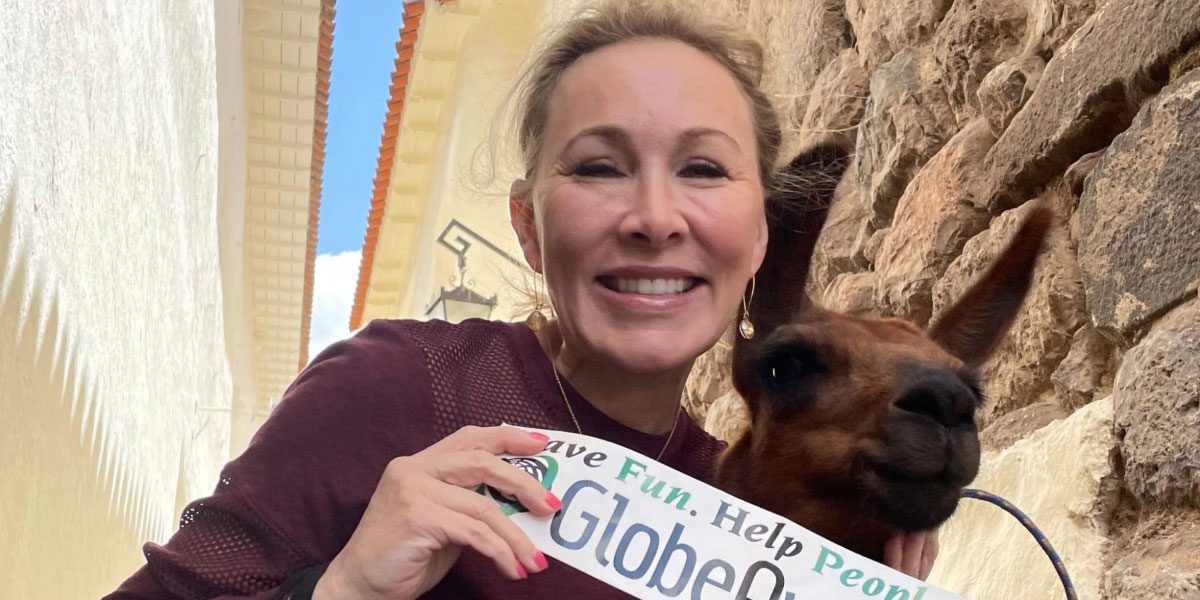
These journeys aren’t just about hammering nails or mixing cement; they’re gateways to a profound change in perspective. Kimberly Haley-Coleman sums it up best. “These experiences are absolutely transformative and make you see humanity in a new light.”
Picture yourself stepping into a new culture not just as a visitor, but as a participant. Globe Aware cradles this vision, offering organized yet flexible itineraries. A volunteer vacation here means about 35 hours of collaborative work, coupled with 3-4 optional cultural or leisure activities to deepen your connection to the locale you’re serving in. And they’ve thought of everything—safe drinking water, medical insurance, a bilingual coordinator, and all the necessary project materials and supervision. Hey presto, you’re ready to dive in without fret or fuss.
This isn’t your average travel gig. It’s an adventure with a soul, sanctioned by Globe Aware’s status as a nonprofit with no religious or political affiliations. It welcomes solo travelers, families, corporate groups—anyone with a pulse and a passion for global camaraderie.
Photo Courtesy: Monica Stevens
The transformative nature of these trips percolates through each participant. Busy professionals find a respite filled with gratitude, gaining a deeper reverence not only for what they have at home but also for the real wealth that pulsates within a foreign culture—the human connections formed and the shared smiles that need no translation.
Ready to be a globe trotter with a cause? You can connect with Kimberly and Globe Aware on platforms like LinkedIn or float in a sea of inspirations by tapping into their social media presences on YouTube, Instagram, and Facebook. For the auditory learner, Kimberly’s insights come alive on podcasts, readily streaming on Spotify.
Photo Courtesy: Monica Stevens
Voluntourism under Globe Aware’s wing is more than a mere feel-good phenomenon—it’s a tightly knit fabric of service and cultural exchange that tugs at the core of what it means to be human. It’s an opportunity to embrace a world where your vacation leaves a footprint, not of carbon, but of compassion and constructive change.
So, as the sun sets on the traditional ways of lending a hand abroad, and with Kimberly Haley-Coleman’s Globe Aware as your beacon, the door is wide open to redefine what it means to travel with intent. Your next holiday could be one where joy isn’t just discovered but delivered by your own hands. Isn’t it time to pack your bags with purpose?
- Source: Globe Aware
This song of joy and gratitude for Globe Aware volunteers was written and sung by Emma Peraulta, one of our community program recipients, in December of 2023 in the Philippines.
- Source: BBC
BBC Travel Show - Passengers with a Purpose
Jul 14, 2022
BBC
Emeline Nsingi Nkosi finds out what life’s like as an international volunteer onboard the world’s biggest civilian hospital ship. The Green Guide’s back - asking how to travel sustainably on a budget, and the team’s in India taking a look at a new record breaking railway bridge in the Himalayas.
- Source: The University Network
Globe Aware Makes Volunteering Easy, Safe and Fun
By Hyeyeun Jeon
The University Network
For students in high school and college, volunteering is beneficial in many ways.
Through volunteering, not only can you make meaningful impacts and learn to live as a part of a wider community, but also network with people from various career paths and improve your school applications.
Of course there are numerous local volunteering opportunities available. However, as air travel normalizes again, students can look into opportunities in international communities as well.
With Globe Aware, you can reap the same benefits of volunteering while traveling to various wonders of our beautiful world.
Founded in 2000, Globe Aware is a nonprofit that develops short-term service abroad programs for those interested in volunteer travel.
Volunteering with Globe Aware
Volunteer travel aims to combine the best intentions of the non-profit sector with the excitement of the tourism sector to create stimulating, service-oriented vacations.
With a special consultative status with the United Nations, Globe Aware develops a safe, fun and culturally interesting experience for volunteers interested in service across the world.
The organization’s service projects focus on working side-by-side with locals as equals on community projects that are important to them. Previous projects include installing concrete floors in the homes of single mothers in Guatemala and assembling and distributing wheelchairs for landmine victims in Cambodia.
Simultaneously, Globe Aware provides several cultural excursions throughout every program, such as swimming in deep, water-filled sinkholes formed in limestone known as cenotes in Mexico, and spectacular nature hikes into the Carara Rainforest Reserve of Costa Rica.
None of Globe Aware trips require special skills or the ability to speak a specific foreign language because Globe Aware employees lay the groundwork prior to your arrival and accompany you during the entire volunteer vacation.
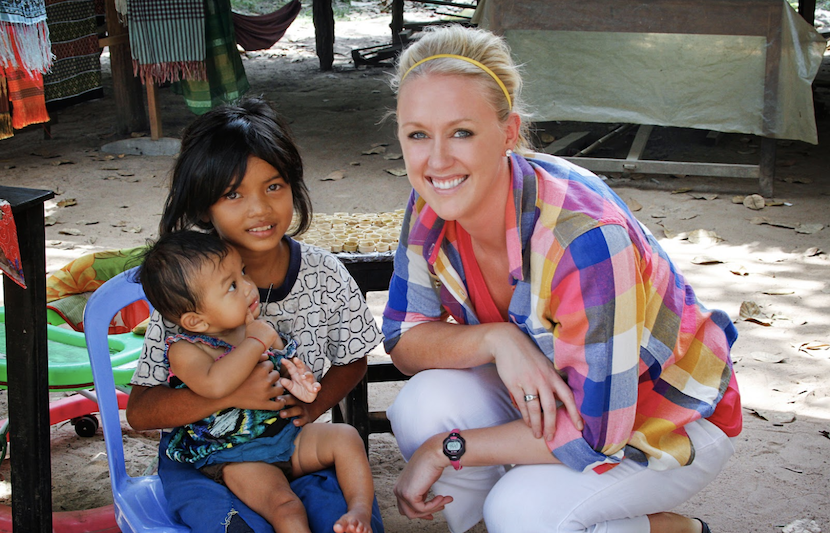
How Students Can Volunteer with Globe Aware
Globe Aware has volunteer programs for high school and college students. These programs typically run for about a week, but programs can be extended up to three weeks upon request.
Destinations vary widely, ranging from a quaint village in Romania to a Rainforest village in Costa Rica. You can look through all programs operating in Africa, Eastern Europe, Asia, Latin America and the Caribbean here.
Note that India, Thailand and Nepal programs are set to reopen this summer after being temporarily closed during the pandemic.
Service Hours
On top of a life-changing experience, Globe Aware trips provide service hours. High school students can use the hours worked during a program (usually 40 hours per week) for their required number of service hours to graduate or to qualify for the distinguished President’s Volunteer Service Award.
And all volunteers can request to receive a Community Service Certificate upon completion of their programs.
Also, there are discounts available for students. For example, participants under 17 years of age or groups of 10 or more can receive a 10 percent discount.
To register for a volunteer travel trip, you can sign up here.
Internship opportunities
For students looking for internship opportunities, Globe Aware provides internships that can be as short as one week and as long as four weeks, which are held virtually from India.
Depending on your interests, you will be directed to one of various organizations, ranging from local schools to elephant welfare nonprofits.
For example, as an intern at a local community center for children from low-income families, you will be working on weekly tasks such as creating educational videos that will be used in virtual lessons.
Though volunteering can be done anywhere, a Globe Aware program is truly one of few opportunities in life that offer the ability to experience another culture while also serving in a deeply meaningful way.
- Source: VoyageDallas
SEPTEMBER 23, 2021
VoyageDallas
Today we’d like to introduce you to Kimberly Haley-Coleman.
Hi Kimberly, so excited to have you on the platform. So before we get into questions about your work-life, maybe you can bring our readers up to speed on your story and how you got to where you are today?
My career has been circuitous, to say the least! From training on-air CNBC staff in financial tools, putting dead people into space with Space Services, working at museums and start-ups! But I found my true calling when I founded Globe Aware a couple of decades ago, organizing experiences that allowed people to have fun helping people. These short-term experiences in 26 countries are designed to give back, show participants a side of the culture they are visiting in a way they never would, but also to make a huge social impact in a short amount of time. Prior to Globe Aware, such experiences were primarily the domain of high school and college students or of churches or meant a 2.5 years Peace Corps commitment. Since then, the organization has grown in ways we could never have anticipated. For example, now corporations send their staff through us, using contribution matching, paid Volunteer Days Off, allowing tax deductions for portions the staff member pays for, etc. BUT THEN the pandemic. Borders closed, travel safety called into question, the world stopped, and I decided to temporarily pivot. And THAT is what led to my creating The Tickle Bar, America’s newest and most unique affordable luxury.
Alright, so let’s dig a little deeper into the story – has it been an easy path overall and if not, what were the challenges you’ve had to overcome?
As conditions around covid 19 have rolled up and down, so too have both my businesses. We have instituted new protocols and have had to keep up with changing requirements. We are doing things we never anticipated. The border situation and pandemic safety conditions change frequently, and we have been lucky to flourish in an uncertain market. Having rapid covid tests administered at our program locations prior to participants returning to the US or transferring program locations from one country to the next, it has NOT been a smooth road, but it has been enormously interesting and gratifying. It is such a privilege that I get to run businesses that provide joy to people at a time when people especially need it.
Thanks – so what else should our readers know about your work and what you’re currently focused on?
As the mother of two teenagers going to the same high school, I did back when I lived in Lakewood, I feel lucky that my daughters get to bear witness to a business person learning how to adapt quickly to changing conditions. This generation, despite the setbacks and struggles, will be stronger than previous generations because of this. When the President declared the Travel Emergency in March of 2020, we did not wait to react. We had closed our Asia programs in January, then immediately started finding creative ways to cut costs. I went unpaid for quite a while, we applied for and received PPP rounds of funding, we created virtual programing to bring services to folks the world over as an alternative to our core businesses, and then we figured out how to fill a niche that people suddenly urgently needed. After months of severely limited human interaction, we created an affordable business to get safe, human, healing, nurturing touch. As a parent, as strange as it sounds, I am glad this all happened while they were still under my wing.
What makes you happy?
Like most people, my greatest source of joy is service. That can be providing the specialty homemade vegan dinners my eldest likes or planning and building a school in Laos. How could anything else compare to that? I think it’s a given, universal thing for which we all yearn.
Pricing:
- Globe Aware programs run from $1000 t0 $1600 per week
- Tickle Bar sessions (think of light back tracing your mom did on your back when you were growing up) from $25 and up
Contact Info:
- Email: info@globeaware.com kimberly@ticklebar.com
- Website: www.globeaware.org and www.ticklebar.com
- Instagram: @globeaware and @tickle.bar
- Facebook: https://www.facebook.com/globeaware and https://www.facebook.com/Tickle.bar
- Twitter: @GlobeAware and @TheTickleBar
- Youtube: https://www.youtube.com/user/lylejenish and https://www.youtube.com/channel/UCwgF2Oy0Nf94OayQJeHj8RA
- Yelp: https://www.yelp.com/biz/the-tickle-bar-dallas
- Source: Good Morning Texas
- Source: Travel + Leisure
How to Volunteer While Traveling With Your Kids
Looking for meaningful travel? Volunteering lets you give back and grow as a family.
By Ken Budd
July 15, 2021
Travel + Leisure
When Jodi Lipson's daughter was seven, the duo embarked on a mommy-daughter adventure — and no, they didn't travel to Disneyland. For one week, the pair did maintenance work at a hostel in Peru and helped local schoolchildren learn English. They soon worked on three more projects with volunteer organization Globe Aware in Guatemala, Cambodia, and Costa Rica. The experiences, said Lipson, who works in book publishing in D.C., have expanded the worldview of her now 13-year-old daughter.
"We've met so many people," she said. "We have a whole repertoire of experiences, feelings, and memories."
As travel-hungry Americans start dusting off their passports, meaningful travel will top many bucket lists—and short-term volunteering should be on your radar. Volunteering abroad was ranked number three on a list of most-desired post-pandemic travel opportunities in a recent survey by Go Overseas, a resource site on meaningful travel.
"People are longing for the type of healing and meaning that our volunteer programs offer," said Michele Gran, co-founder and senior vice president of Global Volunteers.
For kids, volunteering can reveal a world beyond their screens and fuel a lifelong interest in giving. It also helps families to escape their comfort zone, bond, and immerse themselves in local cultures. Volunteering might even impact your child's future. A teenage volunteer with Earthwatch, a scientific organization that runs expeditions worldwide, wrote her college essay on her volunteer experience and was admitted to Stanford. She's now been admitted to several PhD programs in ornithology, which was the focus of her Earthwatch expedition.
Interested in volunteering with your family? Consider these possibilities:
One-day options
You can help others while staying at a hotel or taking a cruise. Crystal Cruises' "You Care, We Care" program provides volunteer shore excursions that range from planting trees at Iceland's Heidmork Natural Reserve to cleaning the banks of the Buñol River in Spain. The Ritz-Carlton offers service opportunities, known as Impact Experiences, as part of its Community Footprints program. These volunteer options are primarily designed for businesses and conferences, but hotels and resorts will also arrange them for families. Several families at the Ritz-Carlton, Amelia Island, for example, recently helped clean area beaches.
Some Airbnb hosts work with local nonprofits to arrange "Social Impact" experiences. Your activity fee supports the nonprofit and you'll get an inside view of their work—and maybe even help out. In San Diego, one Airbnb host is a cofounder of Free Animal Doctor, a nonprofit crowdfunding platform that helps people care for their animals. For the Social Impact experience, guests exercise and socialize rescue dogs for adoption events.
You can also organize volunteer work on your own by asking local nonprofits, visitors bureaus, and tour companies about service opportunities. In Hawaii, giving back can even save you money: Travelers who volunteer during their visit can get a free night at participating hotels.
More-immersive volunteer gigs
For a deeper experience, consider a volunteer vacation, also known as voluntourism. Organizations such as Global Volunteers, Globe Aware, and Projects Abroad run one-week-or-longer family programs in the United States and abroad. Some allow children as young as six; others, like Earthwatch, have a minimum age of 15. Most organizations also provide cultural activities (such as language lessons) and tourism opportunities (the Lipsons visited Machu Picchu while volunteering in Peru).
Multiple organizations expect to relaunch projects in late 2021, though 2022 may be best for families interested in international volunteering, especially as countries start requiring COVID vaccinations, for example, it could create entry issues for children and teens who aren't vaccinated yet). Organizations such as Globe Aware, which has restarted programs in countries such as Costa Rica, Guatemala, Ghana, and Kenya, are taking steps beyond masks and social distancing to protect locals and volunteers: "All our projects, leisure activities, and meals are outside," says executive director Kimberly Haley-Coleman. Global Volunteers is offering programs in Montana, West Virginia, Poland, and Tanzania in July.
Thinking about a weeklong volunteer vacation? Take these steps:
Do your homework. Sites like Go Overseas, Go Abroad and Volunteer Forever post info and reviews as well as tips on family volunteering.
Ask questions. Inquire about subjects such as safety, food, and accommodations. Will you stay in a hotel? With a local family? Are there day trip opportunities to local communities if you're staying in a central location or major city?
Talk with a former volunteer. "Any reputable organization will give you a list of people to speak with," said Alia Pialtos, COO at Go Overseas. "Talking with someone about their experience is different from reading testimonials."
Understand the program fee. Organizations charge a fee that covers everything from lodging to transportation. Find out how your money is spent.
Scrutinize the screening process. Many organizations, for example, require a background check if you're working with kids. If they don't, that's a warning sign.
Ask about the work. Is it necessary? Does it match your talents? If you don't have construction skills you shouldn't be building houses. And make sure you're not taking work from locals.
Appreciate the intangibles. One of the biggest upsides of volunteering is that people talk who would never talk otherwise — which changes how we see each other.
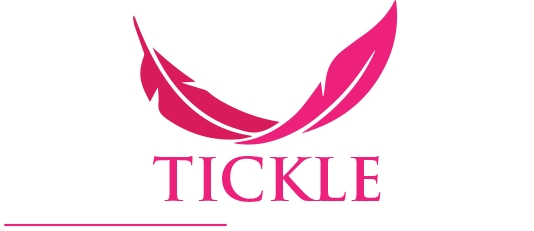
- Source: Dallas morning News
Dallas Tickle Bar Creates Sensation
By Eric Griffey Dallas
Jan. 09, 2021
DALLAS — There is nothing lewd about the Tickle Bar. The website and Facebook page of the new Mockingbird-area business make it clear that illicit activities are strictly forbidden here. Yes, the half-naked woman splayed on a bed whose image is prominently featured on the place’s website appears to be in mid-moan, but that’s strategic, according to owner Kimberly Haley-Coleman.
What You Need To Know
The Tickle Bar offers experiences, like tracing and scratching, designed to produce endorphines
The business does not offer massage or traditional spa treatments
 The Bar's owner, Kimberly Haley-Coleman, founded the business when the pandemic slowedher nonprofit, Globe Aware
The Bar's owner, Kimberly Haley-Coleman, founded the business when the pandemic slowedher nonprofit, Globe Aware
New business offers services that benefit children on the autism spectrum
“I knew we weren't going to spend millions of dollars advertising,” she said. “So, if I did this with a bit of a wink, we would be able to get more attention. If I’d called this a ‘back-scratch store,’ I wouldn't have had as much attention, and we needed that.”
The Tickle Bar is a Mecca for sensory indulgence. The “bar” offers services that include scratching, skin tracing, and other light-touch-induced modes of serotonin-drenched euphoria — all while enjoying a sweet treat or a glass of wine. What you won’t find at The Tickle Bar is a massage package. Haley-Coleman said her model was the Drybar, which focuses only on blow-drying hair with no cutting, coloring, or any other services normally offered by salons.
“There's a sense of luxury to your surroundings,” she said. “So the idea is that you're getting kind of a feast for all the senses, not just for your skin, but you're getting a little cookie and a little wine, you've got all these soft gauzy textures, quiet music, and people are whispering.”
Her business is one of a growing number of pandemic pivots. While many small businesses around the country have been crushed by the COVID-19 shutdowns and other restrictions, there has also been a surge in new businesses this year, according to the U.S. Census Bureau. By the week ending Dec. 5, the bureau reported, business applications were up 43.3% over the same period in 2019.
This uptick, however, is offset by the fact that about 28.8% of small businesses were closed for good as of mid-November, compared with the start of the year, based on data tracked by Opportunity Insights, a nonpartisan, not-for-profit research organization based at Harvard University.
For her day job over the last 20 years, Haley-Coleman has served as executive director of Globe Aware, a Dallas-based nonprofit that offers people “volunteer vacations,” combining wanderlust and altruism.
When COVID-19 strangled the U.S. economy and ground travel to a halt back in March, Globe Aware limped along, hosting online events and virtual fundraising. Haley-Coleman brainstormed ideas for ways to bring in money — a business that could support her and donate its profits to the nonprofit she founded.
She said she asked herself a series of questions that led to the creation of The Tickle Bar: “What do people want? What are they hungry for? What did they not have right now? And what do I want? what do I miss?”
“Frankly, if I had all the money in the world, I'd rather get my back tickled than a massage,” she added. “I just started thinking, ‘You know what? That is so crazy that I think I'm going to do it. And if I'm ever going to do it, now's the time.’ ”
The reaction to her business has been mixed, she said. Some people find the idea of a tickle bar brilliant, while others just don’t understand the concept.
“It tends to evoke a very hot or cold response,” she said.
Though the name might conjure certain salacious or just plain silly imagery for some, the work of The Tickle Bar is backed by science.
Some of the techniques employed by Haley-Coleman’s staff have proven beneficial and calming for people on the autism spectrum, for example. Still, that hasn’t stopped the imaginations of faceless internet trolls from weighing in.
“I get that there might be a sense of humor around anything that has the word tickle in it,” Haley-Coleman said. “There seems to be 20 or 30% of the population that can't get past the giggling nature of it, despite the fact that there is a very serious [health benefit] to sense of touch, whether it's massage, kids on the spectrum, or even people enjoying getting their scalps scrubbed from getting shampooed.
“That sense of touch, to me, has nothing to do with giggling or anything inappropriate,” she continued. “But for a certain segment, it's hard for them to get past that for whatever reason.”
- Source: Bloomberg
What impact will the coronavirus have on tourism in 2020? Some predict the effects will be felt globally, into 2021.
The Coronavirus’s Effect on Tourism Will Carry Into 2021, Experts Say And it won’t just affect China, either.
By Nikki Ekstein
February 13, 2020
Bloomberg
Coronavirus May Affect Tourism Into 2021
Earlier this week, even as infections of the novel coronavirus seemed to be slowing, the effects of the epidemic on the global tourism industry were accelerating rapidly.
The impact of the pneumonia-like disease caused by the virus, called Covid-19, is already being felt across the Asian continent, where leisure and business travel contributed $884 billion to gross domestic product in 2017, the most recent year for which data has been compiled by the World Travel and Tourism Council. (Projections for 2018 are about $1 trillion.) For China alone, inbound tourism brought in $127.3 billion in 2019, according to the country’s tourism bureau.
But as diagnoses tick upward again, travel agents, operators, and hoteliers are bracing for at least months, if not a full year, of economic disruption from the outbreak, with long-term effects that may ripple well into 2021.
“The numbers of trip cancellations—not just to China but to the entire continent of Asia—is growing every day,” says Jack Ezon, founder and managing partner of luxury travel agency Embark Beyond. “People are put off. Sadly, a lot of them are just saying, ‘I don’t know if I want to go anywhere right now.’ Or, in many cases, ‘I’ll just go next year.’ ”
So far, almost 75% of his travelers have canceled their February and March departures to Southeast Asian countries, which the U.S. Centers for Disease Control and Prevention still considers to have a lower, level one risk for coronavirus. “They’re worried about being anywhere close to the outbreak,” he says, “or of getting stuck with canceled flights if other hubs become infected.” A full 100% of the honeymoons his agency had booked to the region have been canceled and rebooked for alternate destinations including the Maldives, Southern Africa, and Australia.
Hilton Chief Executive Officer Chris Nassetta told investors on Feb. 11 that he expects the impact of the new coronavirus to last anywhere from six to 12 months: “Three to six months of escalation and impact from the outbreak, and another three to six on recovery,” he said. He estimated the cost to his company could be from $25 million to $50 million.
Why so long?
Weather, Weather, Weather
When it comes to leisure travel, the biggest question usually revolves around location, location, location. Once that’s been decided, weather dictates all. “North Asia you can do year-round, but Southeast Asia is much more challenging,” says Catherine Heald, co-founder and CEO of the Asia-focused travel specialist Remote Lands. “Thanks to monsoons and very hot temperatures in most of that region,” which last roughly March through September, “people aren’t looking seriously at rebooking until the fall,” she says.
For families, school schedules can complicate plans. “We had one family looking at traveling over spring break, and they won’t have that same window of time until next year’s spring break,” she says. “They’re rebooking for 2021.” The same logic applies for those who specifically wanted to see cherry blossoms in Japan or flowers blooming alongside treks in Nepal—common reasons to plan a spring trip.
Heald’s clients are among the most likely to help the industry rebound. So far her company has seen fewer cancellations than have her competitors because of the way she targets leisure and high-spending travelers. An average trip with Remote Lands costs $1,500 per day for two people, which makes her a purveyor of bucket-list vacations—trips that people are desperately hoping to realize.
“People spend a lot of time and money planning these trips,” she says. “They want to make it happen.” Her workaround so far has been to simply reroute airfares through unaffected hubs, replacing routes through Hong Kong or Shanghai with connections in Tokyo, Seoul, or Dubai. The cost, she says, can range depending on availability of fares and type of tickets booked. “On a scale from 1 to 10, the disruption to our business has been about a 2 or 3,” Heald says, explaining that travelers’ willingness to postpone, rather than cancel, keeps her balance sheets mostly intact.
China vs. the Rest of the Continent
The spa treatment room at Anantara Quy Nhon Villas in Vietnam.Source: Anantara Quy Nhon Villas
Business in China was already low this year because of negative press about trade wars. Heald says only 3 out of 400 trips she booked last year were China-only. Ezon agrees: “China was a little soft this year for leisure anyway, and Hong Kong was a mess from July” and the ongoing protests there.
The broader Southeast Asia region had been benefiting from the overflow, but that momentum is on hold. “People are canceling Sri Lanka and India just because it’s part of Asia,” Ezon says. “There haven’t even really been cases there, but so much is unknown that people are just staying away.” (Sri Lanka has reported one case of someone infected with the new coronavirus and India has reported three so far, according to Bloomberg’s coronavirus tracker.)
Hotels understand travelers’ fears, nonsensical as they may seem. Many have extended gracious policies allowing people to change their plans throughout the Asia-Pacific region at no cost, as long as they rebook before the 2020 festive season. Like Heald and her fellow travel specialists, many hotels are hoping to best retain their 2020 revenues and mitigate outright cancellations.
That’s less of an option for operators such as Guy Rubin, founder of Imperial Tours, whose entire business is based on luxury trips to the Chinese mainland. “Obviously, we have had cancellations and postponements for January, February, and March,” he says. But even travelers with itineraries for October have been inquiring about cancellations.
Others are in a holding pattern, waiting to see if the current strategy of quarantining people to contain the virus works. “If the containment strategy works, then I imagine people will be traveling in China again by summer,” Rubin says. “If it does not work, then I imagine it will take a year for people to regain trust in China.”
Recent History
Guangzhou Flight Arrives In Perth As Australia Issues Entry Restrictions On Foreign Nationals
Passengers from China Southern Airlines Flight CZ319 arrive at Australia’s Perth International Airport in February.Photographer: Paul Kane/Getty Images AsiaPac
Severe acute respiratory system (SARS) is one example the industry is studying for guidance. It took WHO roughly four months from the moment it announced a global alert about SARS until it said the disease was contained, and then an additional five months for the organization to wrap up its efforts to tally new cases. According to aviation analysts at AirInsight, the SARS outbreak cost airlines $10 billion, and that was at a time when global business was less developed.
If it similarly takes nine months for the Covid-19 outbreak to pivot into “recovery” status, which is consistent with the industry outlooks cited here, aviation will take a bigger hit. And it will take longer still for hotels and destinations to fully return to tourism levels before the disease’s spread.
“Think about Fukushima,” Heald says, referring to the 2011 nuclear disaster at Japan’s Fukushima Dai-ichi nuclear plant. “People didn’t regain trust or interest in travel to Japan for years.” The flip side is that when they did, she says, there was such pent-up demand that it led to a boom in tourism: Overseas arrivals rose from 13.4 million in 2014 to 31.2 million in 2018. After many years of reassuring travelers they didn’t need to worry about radiation exposure, Japan suddenly became the fastest-growing destination in the world.
Ezon agrees this tide will ebb and flow. “If SARS was bad, this will be worse,” he says. “But remember Ebola? It’s still in Africa, and safari bookings are stable. Remember chikungunya? Once the news cycle moves on,” he says, “people will forget. Just like everything else, it’ll bounce back.”
Page 2 of 16
